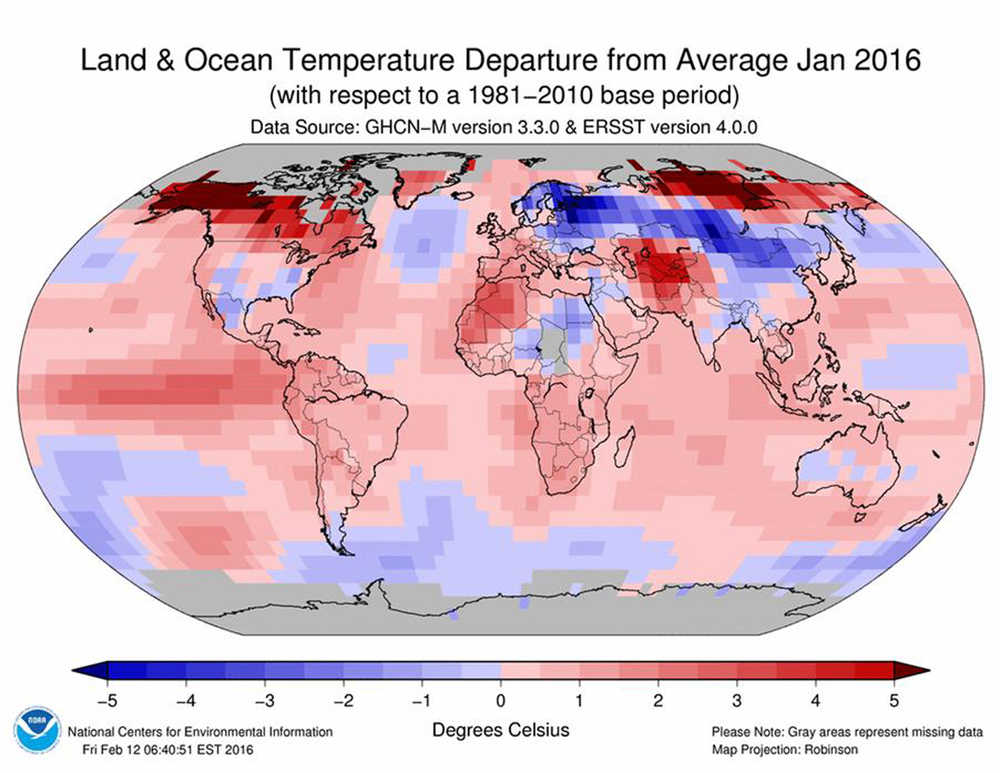WASHINGTON — The January figures are in, and Earth’s string of hottest-months-on-record has now reached nine in a row. But NASA said January stood out: The temperature was above normal by the highest margin of any month on record.
And January set another record: Arctic sea ice reached its lowest point for that ice-building winter month.
NASA said January 2016 was 2.03 degrees Fahrenheit above normal. The National Oceanic and Atmospheric Administration, which calculates temperatures differently, said last month was 1.87 degrees, which is the second biggest margin in history. NOAA said the greatest was this past December.
January’s average global temperature was a record 55.5 degrees Fahrenheit, easily beating the old January record set in 2007, according to NOAA. Records go back to 1880.
There were colder-than-normal patches in parts of the United States, Europe and Asia in January, but they were overwhelmed by incredible “off our chart” warming in the Arctic region, according to NOAA climate scientist Jessica Blunden. Siberia, northwest Canada, and a lot of Alaska were at least 9 degrees Fahrenheit warmer than normal, she said.
That heat was why there was record low sea ice in the Arctic for this time of year, when sea ice grows, Blunden said.
January Arctic sea ice averaged only 5.2 million square miles in January, which is 90,000 square miles below the previous record set in 2011, according to the National Snow and Ice Data Center. It’s also 402,000 square miles — about the size of Texas and New Mexico, combined — less than the 30-year normal.
The string of nine consecutive record hot months matches June 1997 to February 1998, which was the last time Earth had a large El Nino. It is still behind the 10 straight months of record heat in 1944, Blunden said. It’s likely we’ll tie that record in February, she said.
The current El Nino — an occasional natural warming of parts of the Pacific that changes weather around the world and spikes global temperatures — is tied with 1997-1998 for the strongest on record, according to NOAA. And while it has been predicted to ease soon, it has not lessened yet, said NOAA Climate Prediction Center deputy director Mike Halpert.
NASA chief climate scientist Gavin Schmidt blamed the record heat mostly on man-made climate change, with an assist from El Nino.
___
Online:
NOAA: http://www.ncdc.noaa.gov/sotc/global/201601
National Snow and Ice Data Center: https://nsidc.org/arcticseaicenews/2016/02/january-hits-new-record-low-in-the-arctic/

